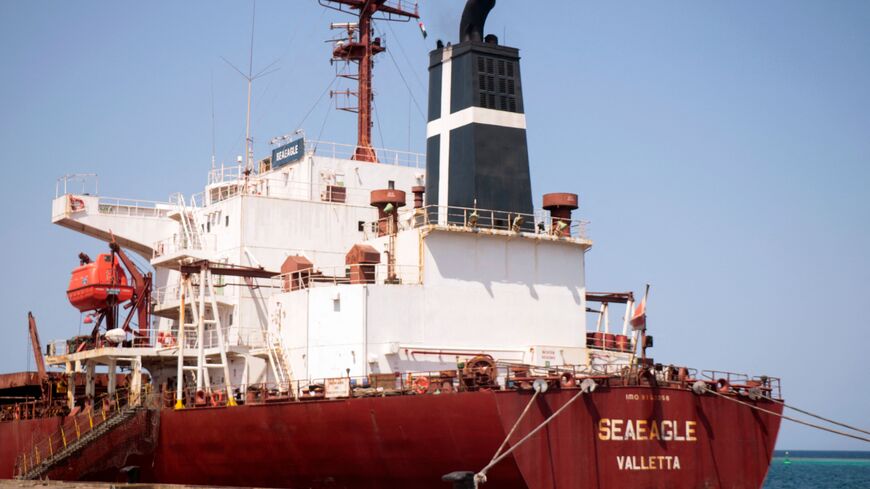The United Arab Emirates announced last week that it has opened discussions with Ukraine over a potential free trade deal known as a Comprehensive Economic Partnership Agreement (CEPA) in order to liberalize trade flows.
The news comes at a time when Ukraine, one of the world’s largest exporters of wheat and grain, is looking for ways to support its war-damaged economy, while the UAE is seeking to ensure its food security.
According to UAE’s minister of state for foreign trade Thani bin Ahmed Al Zeyoudi, trade, the deal will open access to other continents. It will “offer a raft of new opportunities for our exporters, investors and manufacturers, while also opening up access to new markets in Asia, Africa and the Middle East for Ukraine’s agricultural and industrial output," Zeyoudi said last week.
Today, HE Yulia Svyrydenko, First Vice Prime Minister of Ukraine & Minister of Economic Development & Trade, and I have agreed to begin negotiations towards a #UAE-#Ukraine Comprehensive Economic Partnership Agreement to strengthen trade & investment ties between our nations 🇦🇪🇺🇦 pic.twitter.com/Y4kxy0V5p4
— د. ثاني الزيودي (@ThaniAlZeyoudi) December 5, 2022
“We are committed to negotiating a mutually beneficial deal that can not only help drive Ukraine’s economic recovery but also foster long-term growth and opportunity.”
In the years prior to the COVID-19 pandemic and Russia’s invasion of Ukraine, trade between the UAE and Ukraine had been increasing steadily. After dropping in 2020, the trade figures bounced back strongly in 2021 when non-oil trade totaled just over $900 million. This represented an increase of almost 29% compared to 2020 and 12% compared to 2019.
Iuliia Mendel, author and former spokesperson to Ukraine President Vladymyr Zelenskyy, believes that the Ukrainian president has long “paid attention to the development of trade relations around the world,” including in the Gulf.
“He went to the UAE several times before the war, as he sees the UAE as a gateway to many countries in the Middle East and Africa for which Ukrainian agricultural products are crucial to their survival and functioning,” Mendel told Al-Monitor. “Before the war, Ukraine had signed contracts and memoranda with the UAE worth billions of dollars.”
“However, for many reasons, including the pandemic and the war, they could not be fully implemented. These agreements covered not only the agricultural sector but others including medicine and defense.”
Mendel also noted that before the war, Ukrainian exporters faced several difficulties when attempting to export to the UAE market. Perhaps most notably, “Ukrainian agribusinesses had difficulties with obtaining internal UAE certification,” she said. It is hoped that the new CEPA initiative will resolve any similar issues.
According to Will Todman, fellow in the Middle East program at the Center for Strategic and International Studies, the UAE’s desire to develop deeper economic relations with Ukraine may partly be driven by its status as a major exporter of grains.
“Ukraine’s grain exports are particularly important for the UAE, which is trying to enhance its food security and diversify its supply chains,” Todman told Al-Monitor. “The UAE is already a regional and global trading hub and is seeking to cement its status as a global food hub. Food security has been an important aspect of the comprehensive economic partnership agreements it has forged with other states, including India and Israel.”
“Strengthening its ties with Ukraine, one of the world’s largest grain exporters, is another important pillar in its strategy to secure all aspects of the international food production supply chain,” Todman added.
The move could have significant repercussions across the Middle East and North Africa. The war in Ukraine has disrupted global food supplies and contributed to higher inflation for essential goods. The MENA region has been particularly exposed to these developments because they are some of the biggest importers of Russian and Ukrainian grain supplies. At the same time, multiple countries in the Maghreb have had to increase their imports because of the worst drought in decades. Mendel said that considering these conditions, “Ukrainian authorities are looking for ways to restore previous agreements for the supply of agricultural products to the Middle East and North Africa.”
Todman agrees that because of the UAE’s role as a hub for other markets in the Middle East and North Africa, the move “would likely bring broader economic benefits to other states in the MENA region and beyond.”
While the proposed deal could be a major moment in the development of trade relations between Ukraine and the UAE, this is unlikely to suggest any change of strategy when it comes to the UAE’s approach to the conflict. The Emiratis continue to maintain a position of neutrality in the Russia-Ukraine conflict. Todman pointed out that “in late November, the UAE hosted a rare meeting between Ukrainian and Russian officials in Abu Dhabi to discuss a prisoner exchange and the resumption of ammonia exports.”
“The UAE is keen to maintain its status as a neutral mediator, and Emirati officials have frequently said they seek to support diplomacy to end the war,” he said. “However, these discussions do indicate an Emirati assessment that it maintains the freedom to forge closer ties with Ukraine. This announcement therefore serves as an expression of independence and its ability to withstand Russian pressure.”
This trade deal is clearly an important step toward the UAE achieving its aim of food security — not only for itself, but also the wider MENA region. Todman also believes that the deal is a significant development in the UAE’s plans to become a global trading powerhouse. After all, CEPA would be its first comprehensive economic partnership with a European country.
“This deal would represent a major foray into the European market,” he said.







